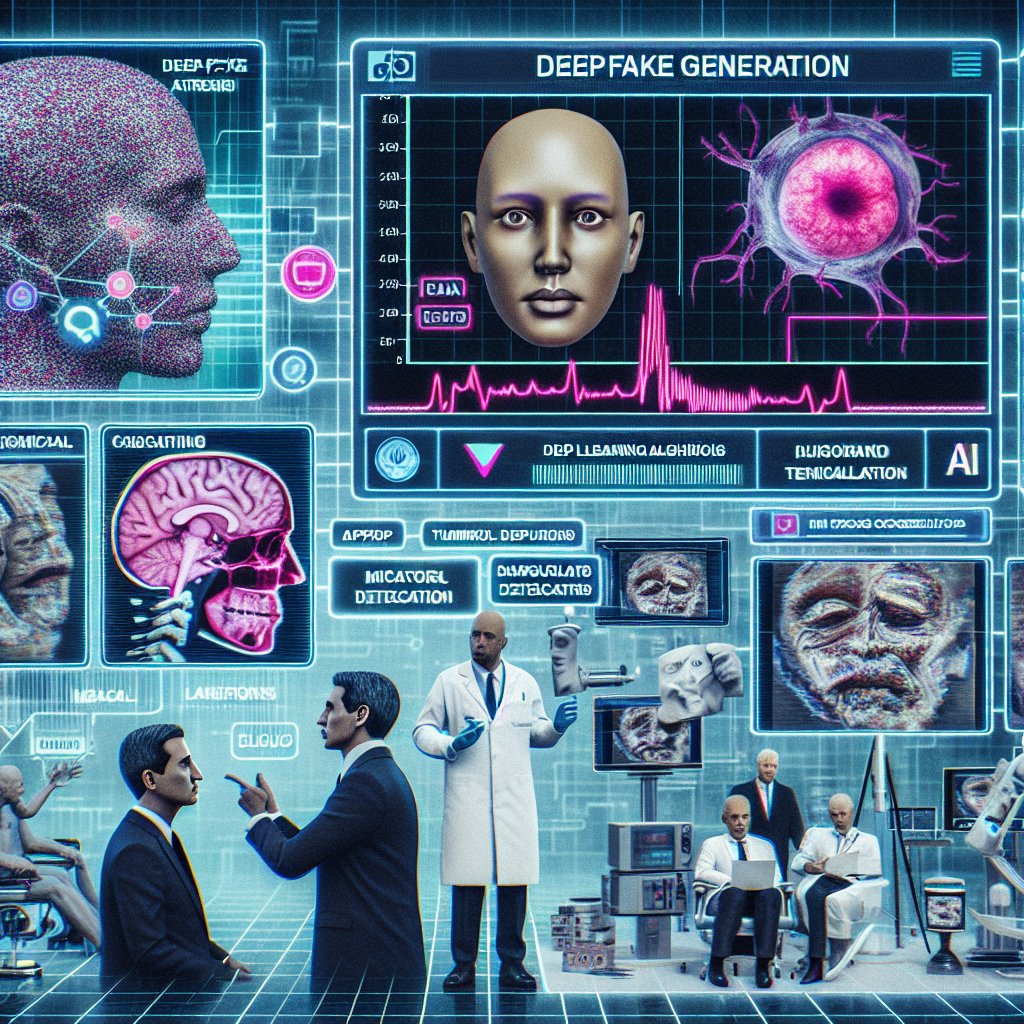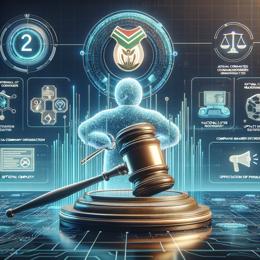Image created by AI
The Rising Threat of Deepfakes in South Africa: Urgent Call for Legal Protection
The prevalence of deepfake technology, which warps reality by manipulating images and videos using artificial intelligence, has grown to an alarming extent in South Africa – ensnaring public figures such as renowned news presenter Leanne Manas. Known for bringing the morning news to countless South African households, Manas's likeness was illicitly commandeered to promote fraudulent products and get-rich-quick schemes, signaling a wake-up call on the threats posed by deepfakes.
Deepfakes leverage AI tools, like FaceSwap and ZaoApp, available to anyone with just a simple download, for the purpose of creating hyper-realistic forgeries. While initiated in the realm of entertainment, such as enabling an actress to virtually participate in a French soap opera during the pandemic, its darker implications are surfacing more frequently. Deep learning algorithms, like those used in generating deepfakes, do share beneficial uses, such as aiding in tumor detection in medical imagery.
Outside of these limited positive uses, deepfakes hold potential for disturbing consequences, particularly in the political arena. As countries grapple with protecting the sanctity of democratic processes, the potential for deepfakes to disseminate false information and sway election outcomes becomes a critical issue. Despite the rising trend of deepfake incidents within our borders, South African authorities have yet to enact specific legal measures to tackle this form of digital fraud – a concerning omission as we approach national elections.
This journalistic inquiry, informed by academic expertise in sports law and a focused interest in image rights, underscores the urgency for legal protection against the unauthorized use of individuals' likenesses, particularly when deepfakes are involved. In my doctoral thesis, I advocate for the establishment of a clear legal framework protecting a person's image, considering the digital media landscape and how many people, including influencers, athletes, and celebrities, monetize their online image.
A snapshot of international legislative responses reveals proactive steps. Several states in the US have introduced laws targeting deepfakes, with Texas imposing criminal penalties for deepfakes related to elections or distributing non-consensual sexually explicit deepfakes. California, Maryland, Massachusetts, and New York have crafted legislation to criminalize deepfake usage in political campaigning and beyond.
South Africa, however, lacks explicit recognition of image rights within its current case law or legislation, a gap that copyright protection alone cannot fill. Legal intervention recognizing individual image rights is the need of the hour. Such legislation should protect images from unauthorized commercial use and combat malicious deepfake manipulations across the board.
In conclusion, establishing robust image rights legislation is vital for regulating deepfakes. As these AI-generated fabrications increasingly threaten individual reputations and the integrity of democratic processes, the time is ripe for South African lawmakers to step in and furnish individuals with the protection they desperately need. Legal recourse must evolve to counter the deceptive and harmful capabilities of deepfakes to safeguard both public figures and citizens alike against this insidious digital threat.


